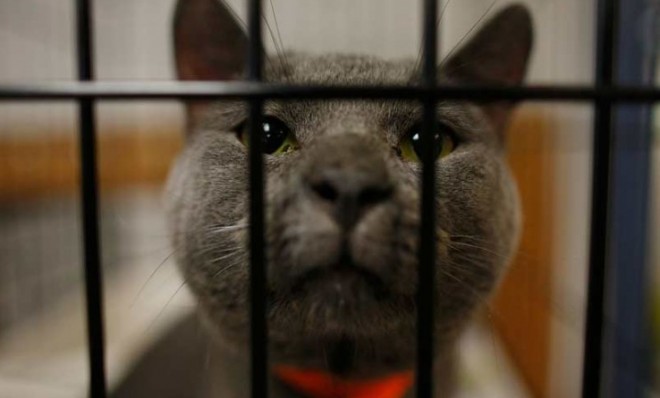The cat who was just lucky
It walked 200 miles and found his home


A free daily email with the biggest news stories of the day – and the best features from TheWeek.com
You are now subscribed
Your newsletter sign-up was successful
Who doesn't like a good cat story?
A few months ago, during a vacation to Daytona, Florida, Holly the cat slipped away from her owners. In despair, Jacob and Bonnie Richter searched. They returned home sans kitty, assuming they'd never see their pet again. Two months later, an emaciated Holly turned up in a field about a half mile away from her home, 190 miles to the south, in West Palm Beach, Florida.
There is no explanation for this. Cats aren't known to be equipped with long-term direction-finding capabilities, and don't seem to have the mental mapping faculties of species like bats and penguins. How could Holly, tiny little ball of fur, an unsentient animal, possibly know where to go?
The Week
Escape your echo chamber. Get the facts behind the news, plus analysis from multiple perspectives.

Sign up for The Week's Free Newsletters
From our morning news briefing to a weekly Good News Newsletter, get the best of The Week delivered directly to your inbox.
From our morning news briefing to a weekly Good News Newsletter, get the best of The Week delivered directly to your inbox.
All the articles about Holly suggest that some invisible bond between the cat and her owners endowed the animal with scientifically inexplicable powers. She "returned" home. Or she "found her way" home. Or she "went" home.
Assuming no significant breakthroughs in feline physiology, it's safe to say that we will not know how Holly came home.
Now, what happens to the 5,000,000 other cats who are lost every year? Some are found, some return very short distances home, but the large majority simply disappears. It stands to reason that a lost scared cat will move somewhere. A cat might well choose, randomly, the direction that puts her on a straight-line course to her destination. The odds are tiny, but there is a reason why these stories tend to be news: They are so rare.
One factor that may have helped Holly choose her direction: Daytona Beach and West Palm Beach are connected by a long road, along which many tourists and commercial vehicles travel each day. It is not inconceivable that her weakness and emaciation resulted not from a 200-mile journey but from her inability to find a home after jumping aboard a pick-up truck that seemed inviting on a chilly night. It is also much easier to conceive of an animal's ability to maneuver around the obstacles of civilization to travel roughly in a straight line. Cat whiskers are fairly amazing collectors of geographic intelligence.
A free daily email with the biggest news stories of the day – and the best features from TheWeek.com
I hope I don't sound hard-hearted. I'm glad cat and owner are reunited. But how does a parent explain this story to a kid whose cat didn't come home? Patches didn't love her as much? A little of bit of creative exposition can go a long way, and there's no need to resort to magical thinking.
Marc Ambinder is TheWeek.com's editor-at-large. He is the author, with D.B. Grady, of The Command and Deep State: Inside the Government Secrecy Industry. Marc is also a contributing editor for The Atlantic and GQ. Formerly, he served as White House correspondent for National Journal, chief political consultant for CBS News, and politics editor at The Atlantic. Marc is a 2001 graduate of Harvard. He is married to Michael Park, a corporate strategy consultant, and lives in Los Angeles.
-
 Crisis in Cuba: a ‘golden opportunity’ for Washington?
Crisis in Cuba: a ‘golden opportunity’ for Washington?Talking Point The Trump administration is applying the pressure, and with Latin America swinging to the right, Havana is becoming more ‘politically isolated’
-
 5 thoroughly redacted cartoons about Pam Bondi protecting predators
5 thoroughly redacted cartoons about Pam Bondi protecting predatorsCartoons Artists take on the real victim, types of protection, and more
-
 Palestine Action and the trouble with defining terrorism
Palestine Action and the trouble with defining terrorismIn the Spotlight The issues with proscribing the group ‘became apparent as soon as the police began putting it into practice’
